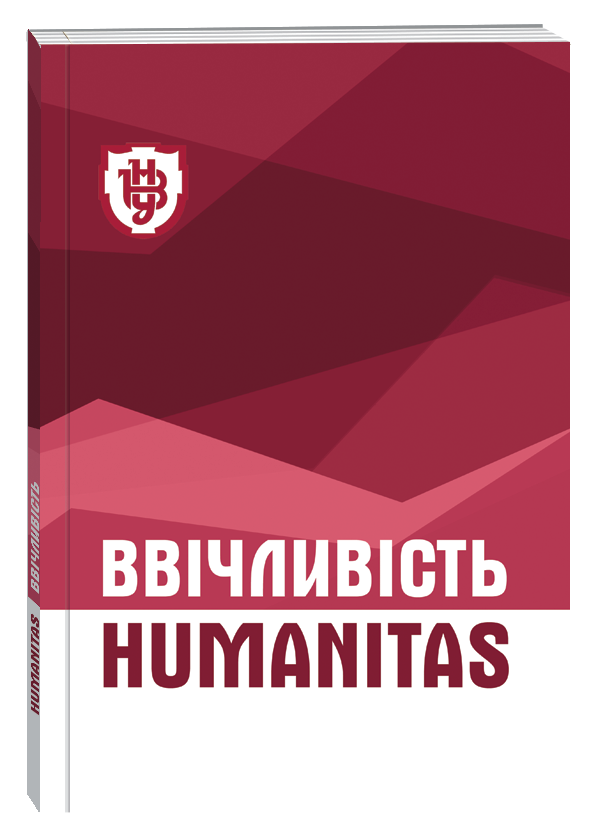GERAGOGY: PROMOTING ACTIVE AGING THROUGH EDUCATION AND SOCIAL INTEGRATION
DOI:
https://doi.org/10.32782/humanitas/2024.4.9Keywords:
geragogy, active aging, education for older adults, digital inclusion, social integrationAbstract
Geragogy is a new direction in pedagogy that specializes in the education of older adults, taking into account their specific needs and developmental characteristics. However, geragogy is not merely a branch of adult education; it is a combination of pedagogical technologies and social work that creates an inclusive environment for learning and development among older people. This article is dedicated to the development and implementation of geragogical practices within the context of the active aging concept, which promotes social integration and enhances the quality of life for older adults. The article analyzes the theoretical foundations of gerontological educational programs, as well as various approaches to adapting educational programs that help older adults develop critical thinking, emotional resilience, and active participation in society. One of the key aspects of geragogy is motivation for learning, which allows for overcoming internal barriers such as doubts about one's abilities or negative past learning experiences. The article proposes methods to activate the learning process, including group work, engaging younger mentors, and creating gerontological educational programs that support self-development and boost older adults' confidence in their abilities. The article also discusses the importance of digital inclusion in the lives of older adults. In the context of modern digitalization, it emphasizes the need to teach older adults the basics of computer literacy, how to use smartphones, social media, and government services, which enables them to maintain social connections, access up-to-date information about social services, and actively interact with the surrounding world. The implementation of the proposed directions of geragogical activities can significantly improve the quality of life for older adults, promoting their social activity, self-expression, and integration into contemporary society.
References
Каркач А. В., Семигіна Т. В. Подолання цифрової нерівності як виклик для сучасної соціальної роботи з літніми людьми. Paradigms of the Modern Educational Process: Opportunities and Challenges for Society (1st ed.). Dallas : Primedia eLaunch LLS, 2019. P. 96–105.
Каркач А., Семигіна Т. Цифрова компетентність людей літнього віку. Tallinn : Teadmus, 2024.
Лук’янова Л. Концепція діяльності Університетів третього віку. Київ : Вид-во ТОВ «Юрка Любченка», 2021.
Семигіна Т., Каркач А. «Е-інклюзія» літніх людей і соціальна робота. Актуальні проблеми соціальної педагогіки та соціальної роботи : м-ли Всеукр.наук.-практ. конф. Умань : ВІЗАВІ, 2019. С. 130–133.
Сопко Р. І. Потреби людей похилого віку: теоретико-методологічні підходи до дослідження і проблеми реалізації. Наукові праці. Чорноморського державного університету імені Петра Могили комплексу «Києво-Могилянська академія». Серія : Соціологія. 2014. Вип. 244(232). С. 115–119.
Столярик О., Семигіна Т. Підхід, орієнтований на сильні сторони: огляд основних принципів. Ввічливість. Humanitas. 2022. № 4. С. 59–67.
Battersby D. From Andragogy to Gerogogy. Journal of Educational Gerontology. 1992. Vol. 2(1). P. 4–10.
Breinbauer I. M. Bildung im Alter. Die neuen Alten – Retter des Sozialen? VS Verlag für Sozialwissenschaften, 2007. P. 85–107.
Bubolz-Lutz E., Engler S., Kricheldorff K., Schramek R. Geragogik. Bildung und Lernen im Prozess des Alterns. Kohlhammer, 2022.
Glendenning F. Educational gerontology: International perspectives. New York : St. Martinаs Press, 1985.
Halicki J. Edukacja osób starszych w Polsce – jej wymiar teoretyczny i praktyczny. Edukacja Dorosłych. 2013. № 2(69). S. 9–18.
Hachem H. Older learners partaking in intergenerational learning: Freirean-inspired remarks. Ricerche di Pedagogia e Didattica. Journal of Theories and Research in Education. 2023. Vol. 18(2). P. 81–96.
Kern D. Conceptual Basis for Learning. Learning across Generations in Europe. Research on the Education and Learning of Adults / Schmidt-Hertha, B., Krašovec, S. J., Formosa, M. (eds). Rotterdam: SensePublishers, 2014.
Kilian M. Special geragogy in an aging society–needs and possibilities. Exlibris Social Gerontology Journal. 2016. Vol. 12(2). P. 89–104.
Petzold H.G. Integrative Geragogik – Gestaltmethoden in der Bildungsarbeit mit alten Menschen. Gestaltpädagogik. Konzepte der integrativen Erziehung / Petzold, H. G., Brown, G. (Hrsg). München : Pfeiffer, 1977. S. 214–246.
Rosell J., Sepúlveda-Caro S., Bustamante, F. Educational Gerontechnology: Toward a Comprehensive Model for the Education of Digital Technologies for Older Adults. International Conference on Human-Computer Interaction. Cham : Springer Nature, 2024. P. 275–292.
Semigina, T., Karkach, A. The elderly care, active ageing and geragogy: could they co-exist in Ukraine and how? Representation of educational achievements, mass media and the role of philology in the modern system of sciences. Vinnytsia : European Scientific Platform, 2022. С. 62–84.
Schirmer M., et al. Educational Concepts of Digital Competence Development for Older Adults – A Scoping Review. International Journal of Environmental Research and Public Health. 2023. Vol. 20(13). P. 6269.
Takagi E., Marroquin-Serrano M. C. Friendly University principles: discussion with older learners. Educational Gerontology. 2024. Vol. 50(1). P. 49–61.
Zaidi A. et al., eds. Building Evidence for Active Ageing Policies: Active Ageing Index and its Potential. Singapore : Springer Nature, 2018.







